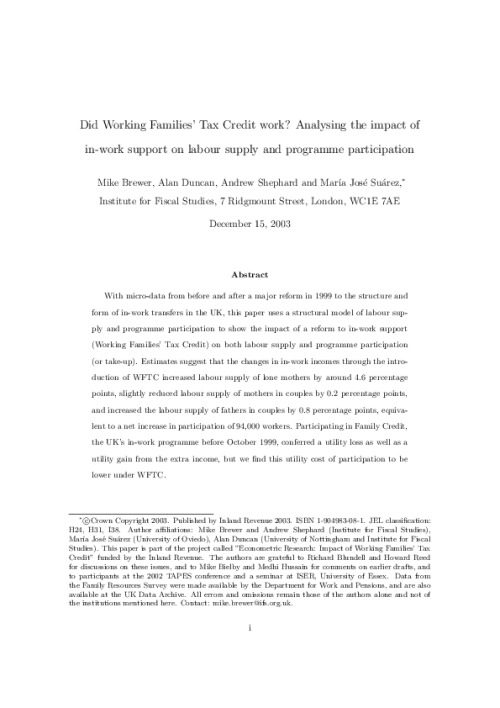With micro-data from before and after a major reform in 1999 to the structure and
form of in-work transfers in the UK, this paper uses a structural model of labour supply
and programme participation to show the impact of a reform to in-work support (Working Families' Tax Credit) on both labour supply and programme participation (or take-up). Estimates suggest that the changes in in-work incomes through the introduction
of WFTC increased labour supply of lone mothers by around 4.6 percentage
points, slightly reduced labour supply of mothers in couples by 0.2 percentage points,
and increased the labour supply of fathers in couples by 0.8 percentage points, equivalent
to a net increase in participation of 94,000 workers. Participating in Family Credit,
the UK's in-work programme before October 1999, conferred a utility loss as well as a
utility gain from the extra income, but we find this utility cost of participation to be
lower under WFTC.
This work is updated in a further paper, The final evaluation of the impact of in-work support on parents' labour supply and take-up behaviour in the UK.












